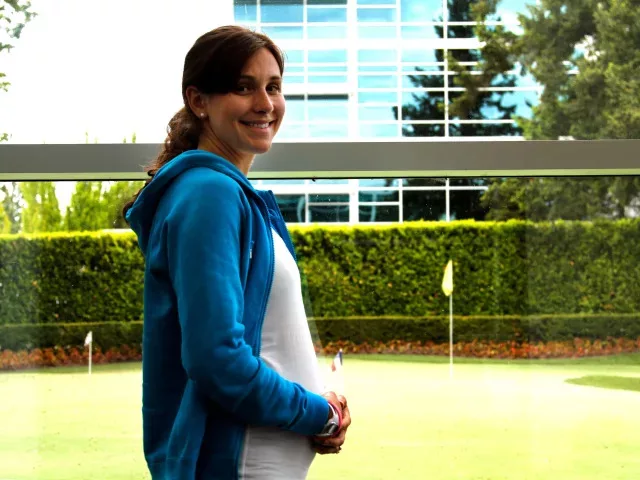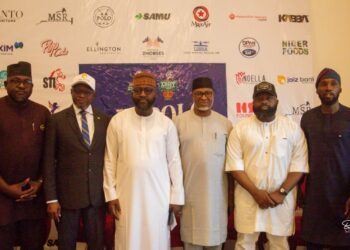In the spring of 2010, Nike pitched a story to The New York Times about the pregnancy of Kara Goucher, an elite runner the company backed.
The Times published the story on May 9, 2010, framing Goucher as a fitness role model for mothers and moms-to-be.
Two months later, Nike temporarily stopped paying Goucher, withholding a quarterly payment of her $325,000 annual Nike salary, she wrote in “The Longest Race,” her new pull-no-punches memoir about her running career and her experience as a part of the elite Nike Oregon Project.
“I had worked my butt off for the entirety of my pregnancy while they marketed me as a mother-athlete to consumers, yet they were effectively telling me that none of that work had any value,” Goucher wrote.
Goucher gave birth to her son, Colton, in September 2010. Goucher wrote in the book that Nike withheld a second quarterly payment in October 2010, despite Goucher continuing to do photo shoots and other public appearances for Nike.
Another former elite Nike runner, Alysia Montaño, also addressed Nike’s withholding of Goucher’s payments during her pregnancy in a 2019 New York Times opinion piece.
Goucher said she continued to make promotional appearances for Nike during her pregnancy, including posing for photos at Nike’s headquarters in May 2010.
Goucher said she continued to make promotional appearances for Nike during her pregnancy, including posing for photos at Nike’s headquarters in May.
Goucher’s story and the scandal surrounding the now-disbanded Nike Oregon Project are public. Still, the book offers the most in-depth look yet at accusations that Nike, its coaches, and its executives have mistreated female runners while marketing them with advertising campaigns and choreographed news stories. Nike is facing similar accusations over how it promotes Black athletes.
“I hadn’t met a single woman at Nike in a leadership position,” Goucher wrote. “For a company that aggressively courted female consumers, they had few, if any, women making decisions about how their business was run.”
Critics have long slammed Nike for a lack of diversity in its corporate ranks. The company has tried to address it by promoting more diverse employees, expanding recruiting efforts, and making promotions more merit-based.
In an email response to written questions from Insider, Nike provided a statement, but did not address any of Goucher’s specific allegations.
“Sexual misconduct has no place in sports or society and is something we stand vehemently against,” Nike said in the statement to Insider. “As a company, we’ve always taken great pride as a leader in supporting female athletes, and this includes supporting women as they decide how to be both great mothers and great athletes.”
Critics – including the former Nike runners Montaño, Allyson Felix, and Mary Cain with a series of fiery New York Times opinion pieces in 2019 – have repeatedly condemned Nike for its treatment of female runners.
“In 2018 we standardised our approach across all sports to support all of our female athletes during pregnancy,” Nike said in the statement. “While the specifics of each situation are unique, the policy waived performance reductions for 12 months. Additionally, the policy was expanded in 2019 to cover an additional six months, for a total of 18 months. We know that Nike can continue to play an elevated role in supporting female athletes and improving their experience in sports.”
The Nike Oregon Project was shuttered in 2019. Salazar is no longer a Nike coach – the company removed his name from a building on its campus in 2021 after the US Center for SafeSport banned him from track and field for life following a ruling of sexual misconduct.
In a promotional interview for her book on “Good Morning America” last month, Goucher said for the first time that she had been the one to report Salazar to SafeSport.
Goucher hopes the book prods readers to “take a deeper look at what we’re doing and how we’re handling our business, and are we really providing safe environments for athletes?” she told Insider.
“I think the answer is ‘no.’”





